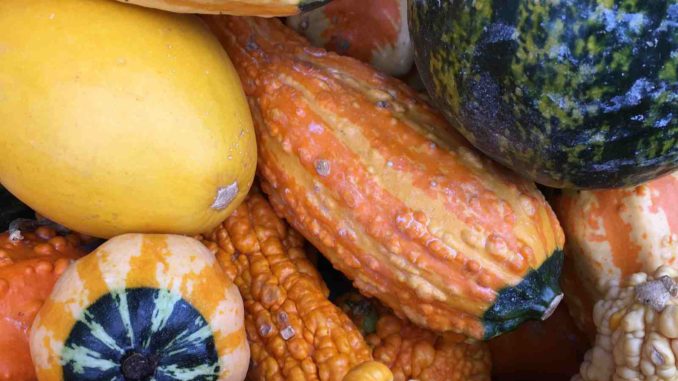
“A Vegetable Garden for Every Home” was the Canadian Ministry of Agriculture campaign slogan during WWI. This is when the War Garden movement became a civic duty and called upon ordinary citizens (mostly women and children) to grow food in any space they could find. Backyards, parks, school grounds, empty lots and even small window boxes were to be used – all in an effort to help feed the troops and combat widespread starvation due to food rationing here at home. It was a tremendous endeavour and extremely successful, producing tons of well-needed nutritious food.
The War Gardens soon became known as Victory Gardens and they were needed again during WWII.
In many ways, COVID-19 is a war and some now refer to it as WWC. Is it time we embrace Victory Gardens once again?
According to seed sales, many have already started. My Leaside Life colleague, Holly Reid, has told me all about her new raised garden bed that will soon be planted with vegetables. I’ve started too, and this is something we all need to be doing whether we have gardening experience or not, whether we have a large or small garden, and even if we just have a balcony.
During the last two wars, everyone quickly learned how to grow some food and we can do that too.
But even before COVID-19, community gardens were providing the same positive Victory Garden results for neighbourhoods with more modest incomes or where urban development placed density above the need for essential and usable greenspace. An excellent example is the many community gardens in Thorncliffe Park.
Originally designed as a planned community (featuring high rise apartments) for 12,500 residents, it is now home to more than 30,000. With mostly modest income families from diverse cultural backgrounds, Thorncliffe Park numbers many residents who rely on their community gardens. This is where they can connect to nature and their neighbours while growing fresh food that is helping to feed thousands of local families.
But because of COVID-19, the need for social distancing has become critical in preventing the spread of this virus. As a result, our provincial government has put a temporary stop to our using all park grounds, including public land used for community gardens.
How will this affect the many residents who depend on these community gardens for fresh food during COVID-19?
As I write this, there are a few petitions circulating to enlighten the government on how these community gardens provide an essential food service.
Though we have no idea how things will unfold, it sure seems like the right time to start planting our very own Victory Gardens.
Victory Garden Tips
If you are a first time food grower, here are a few of my best tips for you.
Check out Garden.org before you start. This is the National Gardening Association site that will give you all the information you need on how to start growing food in Ontario along with planting dates. It pays to do a bit of research on every single plant you choose in order to fully understand its needs
Don’t bother with starting seeds indoors if you are a newbie food gardener. Leave this for when you have more experience.
Experiment with both pre-started seedlings and seeds that allow direct sowing, and set them in containers rather than in ground. This will allow you to focus on each plant’s needs for soil type, fertilizing, water and sun exposure. Make sure your container has good drainage and is large enough to accommodate what you intend to grow.
Sunlight is essential for growing fruit and veg (6-8 hours for tomatoes, peppers and cucumbers and fruit trees) but some can do well with less (peas, beans, root vegetables and most berries) and salad greens can get by with very little. By planting in containers, you can move them around to increase or decrease the amount of sun they receive or move them to a sheltered location when needed.
Pot up some pollinator plants to increase your yield and beautify the area around your vegetable containers, which can look very sparse in the beginning. My favorites are lavender, marigolds and nasturtiums.
Collect rainwater and use this instead of tap water, for all of your plants – it’s simply the best. Balcony gardeners can catch some rainwater too if you simply leave some buckets out during a downpour. Store this water in an attractive plastic bin with a cover and add to it every day with your left over water from the tea kettle and water bottles. You will be surprised at how much of your perfectly good waste water adds up.
In the true spirit of Victory Gardens, it’s very important to preserve some of your harvest for the winter months ahead (think tomato sauce, jams, pickling and drying some herbs) and anything left after that, will soon become compost to feed your garden next year. And don’t forget to save some of your seeds for next year’s crop too!
Where to buy your seeds and seedlings
Because of COVID-19, this is a very different year to start a food garden for the first time. With many horticultural businesses temporarily closed or working online only, the early planting season has been a struggle.
But things are changing every day. As I write this, the garden centres at Loblaws and Valu Mart are starting to set up. Davenport Garden Centre is accepting phone and online orders as are many other garden centres and nurseries. Seeds are currently available at our local Canadian Tire and Home Depot or can be purchased online from seed suppliers. For pre-started seedlings, we will just need to wait and see. Challenges are to be expected with gardening and patience is something every gardener must learn. But it’s all a part of the rewarding experience.
Happy Victory Garden planting!




